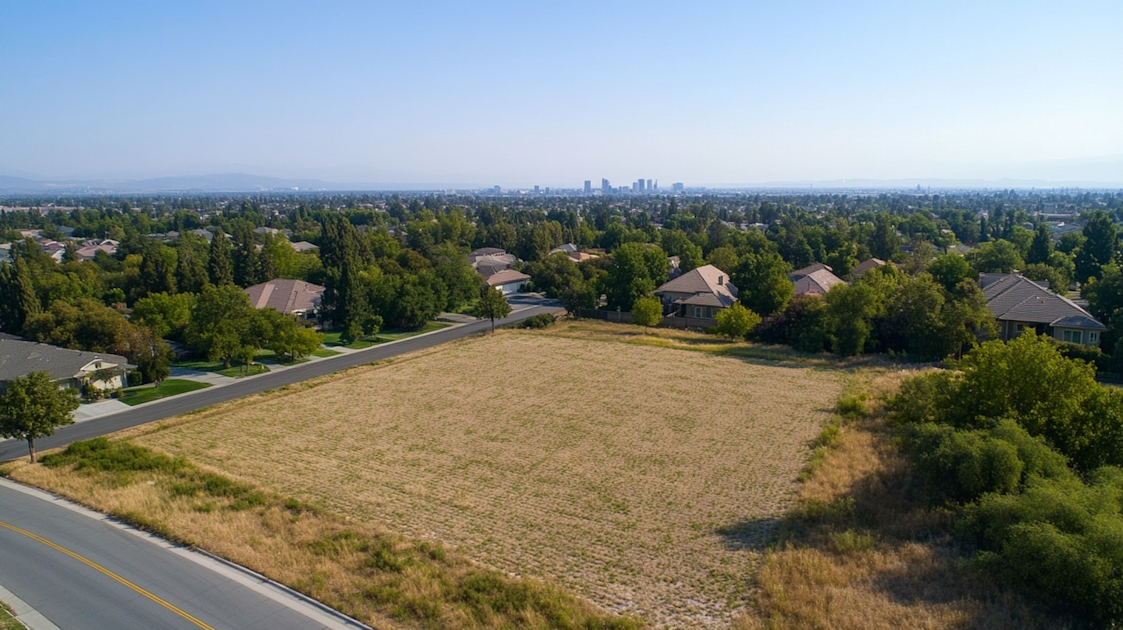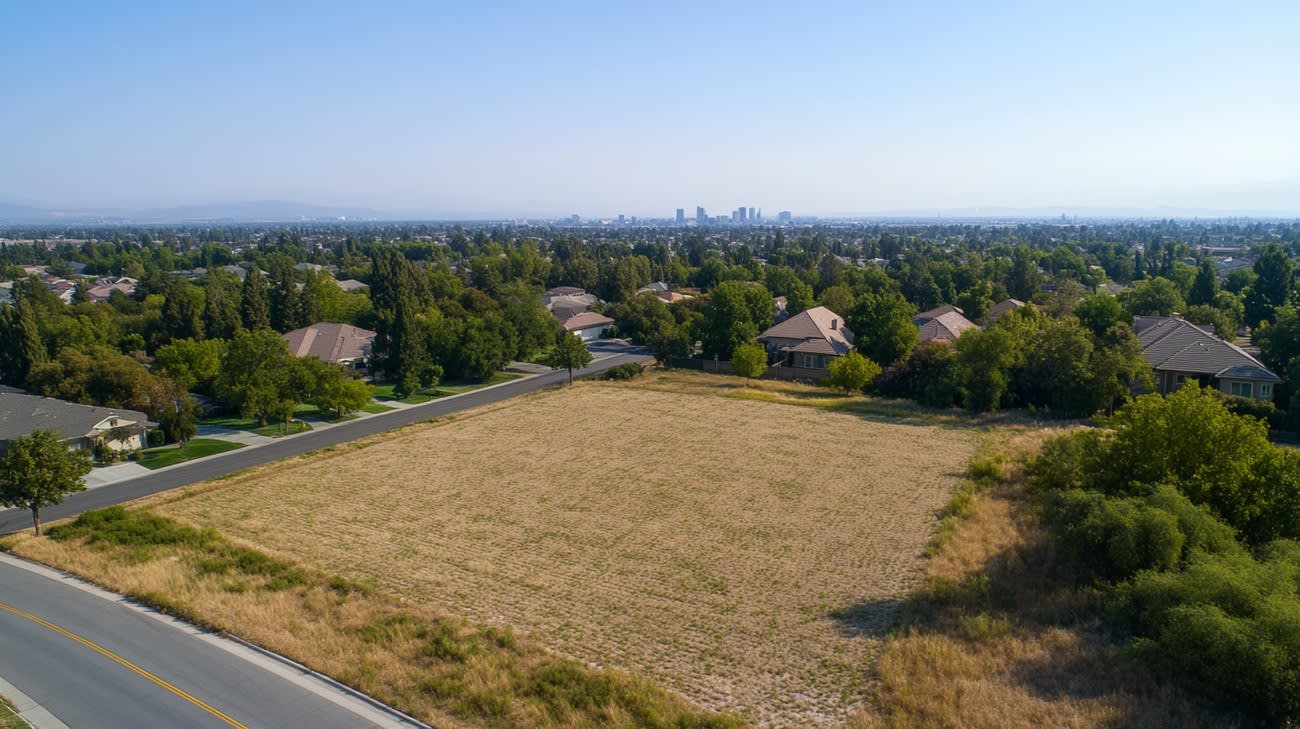Let's delve into the world of real estate and property development, specifically on the topic of land entitlement. This multi-faceted process is vital in the development world. From zoning laws to environmental impact reports, land entitlement can be a challenging maze for developers and property owners.
Understanding Land Entitlement
Land entitlement refers to the legal process that property owners undergo to obtain approvals from authorities, permitting them to develop their property. This intricate process involves submitting various applications, planning proposals, and following specific regulations to comply with land use laws. The path to land entitlement can take a considerable length of time due to necessary public hearings, environmental checks, and community meetings.
The Critical Steps to Land Entitlement
Delve deeper into the land entitlement process by understanding the following critical steps:
- Pre-Application Process: Know the vision of your project and meet with a planning consultant or your local planning department for initial feedback.
- Zoning Verifications: Investigate the local zoning laws and regulations, determine whether your project complies, or if changes must be made.
- Filing Formal Applications: Submit your project proposal to the local planning authority.
- Environmental Impact Study: Organize an environmental impact study to ensure that your projects comply with the local ecology and environment.
- Community Outreach and Presentation: Host community meetings to discuss and gain support for your project.
- Public Hearings and Planning Commission Approval: Attend public hearings for your project, secure approval from the commission, and receive permits.
Remember, each of these steps could entail further smaller steps and multiple crucial procedures, so it's crucial to partner with individuals or firms experienced in land entitlement.
Importance of Land Entitlement
Unfamiliar with why land entitlement is essential to property developers? Here's a list of compelling reasons:
- To assure that proposed land use aligns with local and state regulations
- To ensure that planned developments won't negatively impact the environment or the community
- To decrease the risk associated with property development by securing necessary permissions upfront
- To enhance the property's value: having an already entitled land is more attractive for potential buyers or investors
Challenges in the Land Entitlement Process
While the process is rewarding, the road to land entitlement does come with its set of challenges.
- Time-Consuming: Land entitlement can take a significant amount of time due to the rigorous steps it entails.
- Expensive: The process itself could be costly due to the fees involved, and the risk of costs climbing higher the longer the process is.
- Uncertainty: There are no guaranteed results in land entitlement. There are times when you may not receive approval for the proposed project for a variety of reasons.
Make no mistake, any real estate developer would not downplay the complexity and challenges tied to this process, no matter how experienced they might be. Nevertheless, the result of a successful land entitlement process paves the way for a smoother execution of property development projects.

Frequently Asked Questions about Land Entitlement
What Are The Different Types of Land Entitlements?
There are several forms of entitlements depending on city and county regulations. They include use permits, variances, zone changes, General Plan amendments, and environmental reviews. Each of these processes supports a unique aspect of land development.
How Much Does Land Entitlement Cost?
The cost of land entitlement varies widely based on several factors. These include the nature of the project, its geographical location, related fees, and potential negotiation with neighbors, amongst others. It's hard to provide a concrete figure without considering these parameters, but it's not unusual for costs to reach significantly into thousands or even hundreds of thousands of dollars.
How Long Does Land Entitlement Take?
A similar range of factors also affects how long the land entitlement process takes. Depending on the nature of the project and local regulations, it might take anywhere from several months to several years. The timeframe generally depends on the complexity of requirements, responsiveness of local government agencies or departments, and extent of public involvement.
What Causes Delays In Land Entitlement?
Delays in land entitlement largely stem from the complex nature of the process. These delays may be due to factors such as unanticipated site conditions, changes in local regulations or policies, funding issues, conflicts with neighbors or community groups, or unforeseen environmental concerns.
Can I Sell My Property During The Entitlement Process?
Yes, it's possible to sell your property during the entitlement process, but it's crucial to understand the ramifications of this action. Potential buyers will want access to all relevant information and may press for discounts if they're to assume the risk and costs associated with remaining entitlement work.
How Can I Avoid Problems In The Land Entitlement Process?
Engage in thorough due diligence and have a competent team in place. Early identification of potential issues allows for proactive steps to avoid or manage them. Familiarity with local regulations and maintaining good relationships with the community and local authorities also helps in smoothing the land entitlement process.
Can Land Entitlements Expire?
Yes, land entitlements can expire. The length of validity for entitlements differs by jurisdiction or type of entitlement. Often, expiration occurs if construction hasn't commenced within a certain time frame. Therefore, it's crucial to understand all related timelines and engage in timely development to avoid expiration.
Is Land Entitlement Necessary For All Types Of Land Development?
Not all land development requires entitlement. For instance, if you're planning development strictly within existing zoning designations and land-use regulations, you may not need to go through the entitlement process. However, for many types of development, especially large-scale projects or those proposing change to existing land use, going through the land entitlement process is likely.

Pros of Land Entitlement
Development and Economic Growth
Land entitlements contribute significantly to development and economic growth. They afford individuals, corporations, or governments the right to use a specified parcel of land. This right has the potential to stimulate economic activities such as construction, housing, agriculture and industrial production.
Encourages construction
By receiving the necessary permits and approvals, land entitlement can encourage construction projects. Real estate development often depends on the success of land entitlement processes. This creates jobs for architects, contractors, and laborers alike, driving local and national economies.
Facilitates agriculture
Land entitlement can particularly enhance agricultural productivity. Ownership rights over agricultural land or entitlement to use such land promote farming activities and agricultural investments. This, in turn, can lead to increased food security and a reduced reliance on food imports.
Promotes Social Stability
Land entitlement enhances social stability by reducing opportunities for land-related conflicts. It encourages peaceful coexistence as landlords and land users recognize and respect each other's rights.
Reduces land-related conflicts
By delineating ownership rights, boundaries, and land usage, land entitlement minimizes potential for territorial disputes or conflicts. This reduces the likelihood of social instability and unrest, making communities more secure and peaceful places to live.
Promotes peaceful coexistence
Understanding and accepting their entitlements, different land users can coexist peacefully. Farmers, homeowners, and real estate developers can conduct their activities without infringing on the rights of others.
Empowers Individuals and Communities
Land entitlement can empower individuals and communities by giving them more control over their lives and their spaces.
Provides autonomy
Individuals with entitlements to a land can make decisions regarding its usage without interference. They can choose to develop, sell, or lease the land based on their respective needs and preferences.
Enhances social status
Land entitlement also translates to a degree of social status. Ownership or usage rights over a piece of land command respect in many societies and can contribute to uplifting social prestige.
Cons of Land Entitlement
Increases Land Prices
Land entitlement often leads to an increase in the price of land, which can render housing and other other property-based expenses unaffordable for common people.
Makes housing unaffordable
Due to the high costs involved in obtaining permits and approvals, entitled lands are often expensive. This raises overall housing prices, making it difficult for middle and low income groups to afford property.
Escalates property-related expenses
An increase in land prices not only affects housing costs directly, but also indirectly escalates associated expenses such as property taxes, lease or rent amounts, and insurance premiums.
Encourages Land Speculation
Land entitlement can encourage speculation, whereby individuals or corporations purchase land not for use or development, but simply to profit from potential future price increases.
Drives market volatility
Speculation can lead to unpredictable fluctuations in the land and real estate market. Prices may rise dramatically in the short-term due to speculative activities, only to crash when the speculation bubble bursts.
Hinders real development
Speculative purchasing can divert land from individuals and corporations that would otherwise have used or developed it. This can hamper real development and economic growth despite the theoretical economic potential of land entitlement.
May Lead to Inappropriate Land Use
Although land entitlement can facilitate land use, it can also result in inappropriate or unsustainable practices due to pressures to maximize revenue from the land.
Promotes over-exploitation
Landowners or entitled parties might be tempted to exploit their land excessively in order to derive maximum benefits from their possession. This could lead to overuse of resources, degradation of land and negative environmental impacts.
Exacerbates social inequality
Inappropriately excessive rents or decision-making power over land use may deepen social and economic inequalities. This happens when landowners or those with entitlement avail the lion's share of benefits, leaving the poor and marginalized disenfranchised.
Exposes to Legal Complexities
Land entitlement often involves navigating complex administrative and legal processes which can be resource consuming, filled with red-tape, and potentially risky if mishandled.
Time and resource consuming
Often, the process of obtaining entitlements involves protracted legal procedures, paperwork, and substantial costs. This can be a significant barrier for individuals or corporations with limited resources.
Risk of legal complications
If not handled properly, land entitlement processes can lead to legal complications. One might inadvertently violate local zoning regulations, environmental laws, or other related statutes, which could result in penalties, inconveniences and potential losses.

Myths and Misconceptions about Land Entitlement.
Misconception One: Land Entitlement Means Ownership by Default
A common misconception about land entitlement is that it implies automatic ownership of the piece of land concerned. While entitlement processes may lead to full ownership rights, they do not automatically translate to these rights. Instead, land entitlement pertains to the approval processes that a developer must go through before being allowed to develop or improve a property. This can encompass zoning laws, property rights, permits, regulations, and more. Thus, owning land doesn't necessarily mean you've gotten entitlement. For one to legitimately develop land or put it to use, they can't avoid going through the entitlement process.
Misconception Two: Entitlement is a Quick Process
Developers might enter the land entitlement process with the expectation that it's a swift, straightforward process. However, the reality is that property entitlement can be a lengthy, complex undertaking. The process involves obtaining numerous approvals and permits, including for zoning, site plan approval, and building permits, among others. The timeline can stretch from anywhere between a few months to a few years, depending on the location, size, and type of project, not to mention the local governmental policies and regulations. Hence, patience and due diligence are key to successfully navigating the entitlement process.
Misconception Three: Entitlement Equals Approval for Any Kind of Development
Another common myth surrounding land entitlement is the idea that once you achieve it, you can do whatever you want with the property. This misconception can lead to developers planning ambitious projects without considering the constraints and regulations in play. The true essence of land entitlement is to establish a legal, permitted use or development that complies with the set down local and state regulations. This means what you can do on your property is still subject to local zoning laws, building codes and policies.
Misconception Four: Land Entitlement is Universal
The entitlement process varies greatly from region to region, and from city to city. This leads to the myth that land entitlement is a universal and standardized process. Contrarily, every locality has its own regulations and processes concerning land use. Each property has unique characteristics and each municipality has its own specific regulations. Therefore, property owners should account for these regional variances when planning development projects. Even within the same city, differing zoning laws may result in completely different entitlement processes for two properties.
Misconception Five: Environmental Impact is Not a Significant Factor
When considering discussing misconceptions about land entitlement, the underestimation of environmental impacts deserves attention. All too often, developers may overlook or prematurely dismiss the significance of environmental factors. However, the environmental impact of a proposed project can play a significant role in the entitlement process. Many regions require an environmental impact report or study before permitting a project, especially if the development is on a large scale or in environmentally sensitive areas. Neglecting this aspect can lead to unexpected roadblocks, increased cost and potential legal issues.
Misconception Six: Land Entitlement Adds No Value to a Property
A common myth is that land entitlement adds no value to a property. However, this couldn't be further from the truth. Through the process of land entitlement, developers have the chance to add value to a property by obtaining the permissions necessary for developments or improvements. A property with all necessary permits and entitlements in place can be significantly more valuable than a similar property without these. However, the caveat is that the cost and time invested in securing these entitlements need to be weighed against the potential increase in value.
Misconception Seven: Land Entitlement is an Easy DIY Process
Lastly, many believe that the land entitlement process is a straightforward do-it-yourself task. In reality, navigating the rules, regulations, and bureaucracy associated with land entitlement is often a complex process best left to professionals in the field, such as land use attorneys or consultants. These professionals bring a wealth of experience and can save the developer many potential headaches and pitfalls.
By debunking these misconceptions around land entitlement, property owners and developers can better understand what the process entails, what can be achieved, and plan more effectively for the potential challenges and costs that lie ahead.
Summary
Casual Conclusions on Land Entitlement
Land ownership and rights: When it comes down to it, land entitlement is all about knowing, understanding, and being assured of your rights as a landowner. In its core, it's about navigating through government regulations and making sure you're complying with them at all times. So, whether you're planning to build a skyscraper or a small family home, remember to get your land entitlements sorted first.
Accruing Value through permissions: What's cool about land entitlement is that it can significantly enhance the value of a piece of land. It's not just about the dirt you own; it's about how you can use it. Amending or obtaining the zoning and development rights can increase the value of your property substantially. Building permissions, rights to utilities, all come under land entitlement and could potentially be your ticket to make big bucks out of your land.
The complexity of the process The biggest hiccup about land entitlement is that it can be a lengthy and somewhat grueling process. It involves dealing with an array of government agencies, and often, it could take years. It can also be a bit of a gamble, because you never really know for sure what you claim as your rights until they are approved. But all the hassle is worthwhile because, land entitlement, once granted, gives you the freedom to legally use and enjoy your land.
About HouseIdea
Meet HouseIdea - your friendly neighborhood interior design company located right in the heart of Sacramento, CA. Fueled by a passion for creativity and a genuine love for transforming spaces, we bring to you bespoke design solutions. Whether you're looking to spruce up your cozy little home, or you're a business owner dreaming about a dazzling workplace, HouseIdea has got you covered. Our dynamic team of savvy designers is committed to creating interior designs that don't just look good but make the inhabitants feel good, too. You see, at HouseIdea, we don't just build houses; we create homes.
Tags: property development, zoning regulations, land use planning,



















